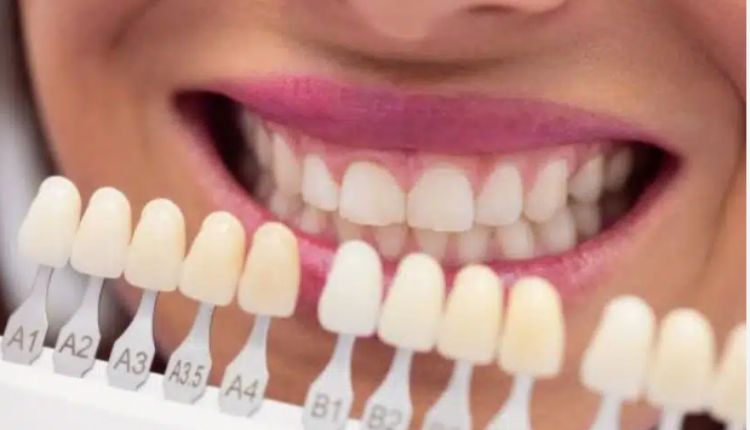Porcelain veneers are a remarkable solution in cosmetic dentistry, offering a quick and transformative way to achieve a flawless smile. Whether you’re covering up chipped, discolored, misaligned, or worn teeth, veneers provide a natural-looking, long-lasting option that enhances both aesthetics and confidence.
While porcelain veneers are incredibly durable and stain-resistant, they are not invincible. Proper care and maintenance are essential to ensure they remain as beautiful as the day they were placed. Below are in-depth, practical tips on how to care for your porcelain veneers and maintain a radiant, healthy smile for years to come.
1. Maintain Excellent Oral Hygiene
Good oral hygiene is the foundation of all dental care—and veneers are no exception. Although porcelain itself doesn’t decay, the natural tooth structure underneath is still vulnerable to cavities and gum disease.
Tips:
- Brush your teeth at least twice a day using a soft-bristled toothbrush.
- Use a non-abrasive fluoride toothpaste to prevent scratching the surface of your veneers.
- Floss daily to remove plaque and food particles from between your teeth and along the gumline.
- Consider using an alcohol-free mouthwash to kill bacteria and maintain fresh breath.
Neglecting oral hygiene can lead to gum recession, exposing the edges of your veneers and making them more susceptible to damage and aesthetic issues.
2. Avoid Hard, Crunchy, or Sticky Foods
Porcelain veneers are strong, but they can still chip, crack, or come loose under pressure. Hard foods and bad habits are some of the biggest culprits behind veneer damage.
Foods and habits to avoid include:
- Ice cubes
- Hard candies
- Popcorn kernels
- Raw carrots or apples (unless cut into small pieces)
- Fingernail biting
- Chewing on pens or pencils
Sticky foods like caramel, taffy, or chewing gum can also create tension at the margins of your veneers, potentially weakening the bond over time.
3. Limit Stain-Causing Substances
Although porcelain is more stain-resistant than natural enamel, the adhesive material at the edges of your veneers and the surrounding teeth are not. Over time, frequent consumption of staining agents can dull your smile’s brightness.
Common stain-causing substances to watch out for:
- Coffee and tea
- Red wine
- Cola
- Soy sauce and tomato-based sauces
- Cigarettes and other tobacco products
If you consume these beverages or foods, consider using a straw (for drinks), rinsing with water afterward, or brushing your teeth within 30 minutes to minimize staining effects.
4.Wear a Mouthguard if You Grind Your Teeth
Teeth grinding, or bruxism, is a serious threat to porcelain veneers. The excessive force generated during grinding can lead to cracks, chips, or even veneer detachment.
What to do:
- Talk to your dentist if you suspect you grind your teeth, especially at night.
- Invest in a custom-made nightguard to protect your veneers while you sleep.
Stress management techniques such as meditation, physical activity, or counseling may also help reduce nighttime grinding.
5.Don’t Use Your Teeth as Tools
Using your teeth to open packages, remove bottle caps, tear tape, or perform other “handy” tricks is a fast track to veneer damage. These actions apply unnatural force and can lead to immediate breakage.
Always keep the proper tools nearby and avoid using your teeth for anything other than chewing food.
6. Schedule Regular Dental Visits
Routine checkups are essential not just for your oral health, but also for ensuring your veneers stay in top condition. Your dentist will examine the integrity of your veneers, ensure your gums remain healthy, and professionally clean your teeth.
Recommended:
- Visit your dentist every 6 months for a cleaning and check-up.
- Have X-rays taken periodically to monitor the health of the teeth under your veneers.
- Address any issues—such as discomfort, increased sensitivity, or looseness—right away.
7.Choose Dental Products Designed for Veneers
The products you use at home can either support or undermine the longevity of your veneers. Harsh abrasives, strong whitening agents, and alcohol-based rinses can weaken the adhesive or wear away at the surface of your veneers.
Ideal product features:
- Non-abrasive formula
- pH balanced
- Alcohol-free mouthwashes
- Toothpaste without harsh whitening agents
If you’re unsure which products are best, your dentist can recommend options that are veneer-friendly.
8.Communicate with Your Dentist
One of the best ways to ensure long-term success with veneers is open communication with your dental care provider. If you experience anything unusual—like a change in bite, unusual sensitivity, or visible changes—schedule a visit immediately.
Porcelain veneers are a cosmetic investment, and regular oversight can help avoid costly replacements or repairs down the road.
Final Thoughts
Porcelain veneers can dramatically improve your smile and self-confidence—but like any dental work, they require care. From daily hygiene to lifestyle habits and regular dental visits, your attention to detail will determine how long your veneers remain in great shape.
With the right maintenance, porcelain veneers can last 10–15 years or longer, preserving your beautiful smile every step of the way. A little extra care goes a long way toward protecting your investment and keeping your smile radiant for years to come.






